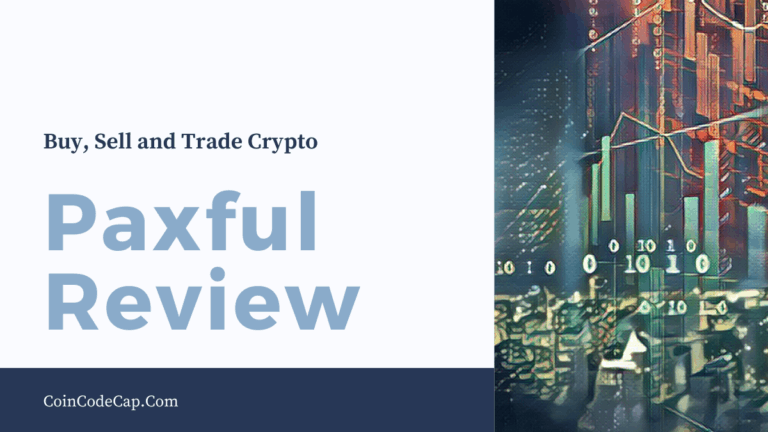In this article, we will review Chainstack, which provides radically simple managed blockchain services to launch and scale decentralized networks and applications.
Of all the providers, Chainstack is unique in that it is specialized in working with both enterprises and individual developers.
Table of contents
Chainstack supports the following protocols:
- Public
- Ethereum (full and archive)
- Bitcoin
- Corda
- Consortium
- Hyperledger Fabric
- Corda
- Quorum
- MultiChain
Chainstack Review: Summary
- Full native API access to your consortium and public nodes
- Free shared and paid dedicated nodes
- You can stop nodes without destroying them
- Rich marketplace to add value to your nodes
- Cross-cloud and cross-region node and network support, including self-managed infrastructure
- Comprehensive documentation and tutorials
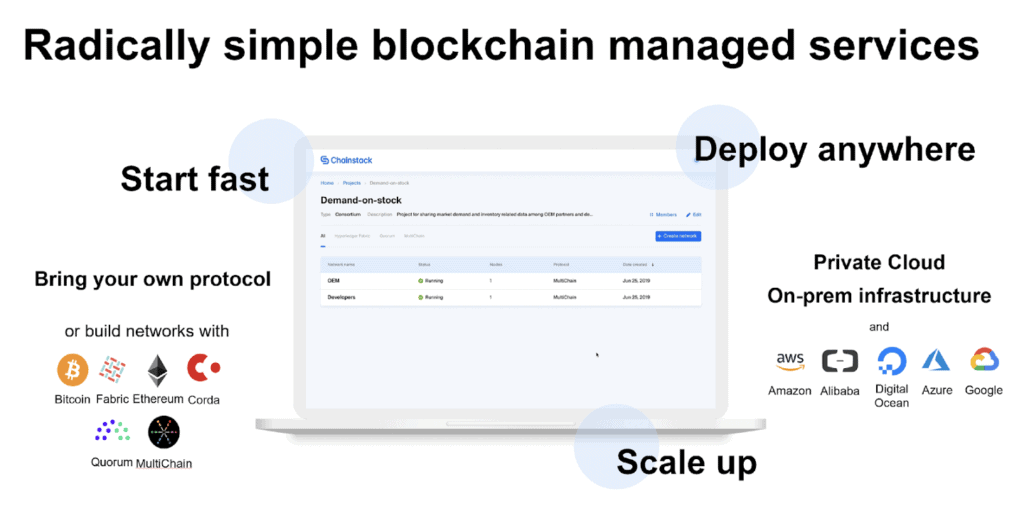
Supported Public networks
For public blockchain protocols, Chainstack supports the Ethereum, Bitcoin, and Corda networks.
You can launch free shared and paid dedicated nodes:
- Ethereum
- Mainnet—both full and archive nodes
- Ropsten testnet
- Rinkeby testnet
- Bitcoin
- Mainnet
- Testnet
- Corda
- Corda Network — the main public Corda network
- Corda Pre-Production Network — a Corda testnet
Supported Consortium networks
For consortium blockchain protocols, Chainstack supports:
- Hyperledger Fabric
- Corda
- Quorum
- MultiChain
Overview
Whether you are an enterprise or a developer, a blockchain service provider like Chainstack is your best option to let you focus on your decentralized application instead of the blockchain-specific DevOps. You can quickly deploy nodes or networks with Chainstack, and the deployment takes under 10 minutes on average, instead of weeks or months. This is due to Chainstack’s patent-pending Bolt technology that gets you a running and fully synchronized blockchain node in minutes.
Chainstack has been around since 2018 and is recognized by the industry for its input as mentioned by Gartner, Forbes, Yahoo Finance, Google Cloud, Cointelegraph, and so on.
Advantages over similar services
Unlike other similar services, with Chainstack, you get full native API access to your nodes instead of just an endpoint to send your queries to. On top of that, you can also stop your deployed nodes when you are not using them and save the costs. Basically, you get full ownership of your nodes.
For Ethereum nodes, you get additional advantages like native GraphQL support, bloXroute integration for fast block propagation to your nodes, and transactions propagation from your nodes.
For the consortium networks—Hyperledger Fabric, Corda, Quorum, MultiChain—you get free of charge service nodes required for the network to run.

There’s an extensive marketplace that you can use to boost the functionality of your nodes both for consortium and public networks.
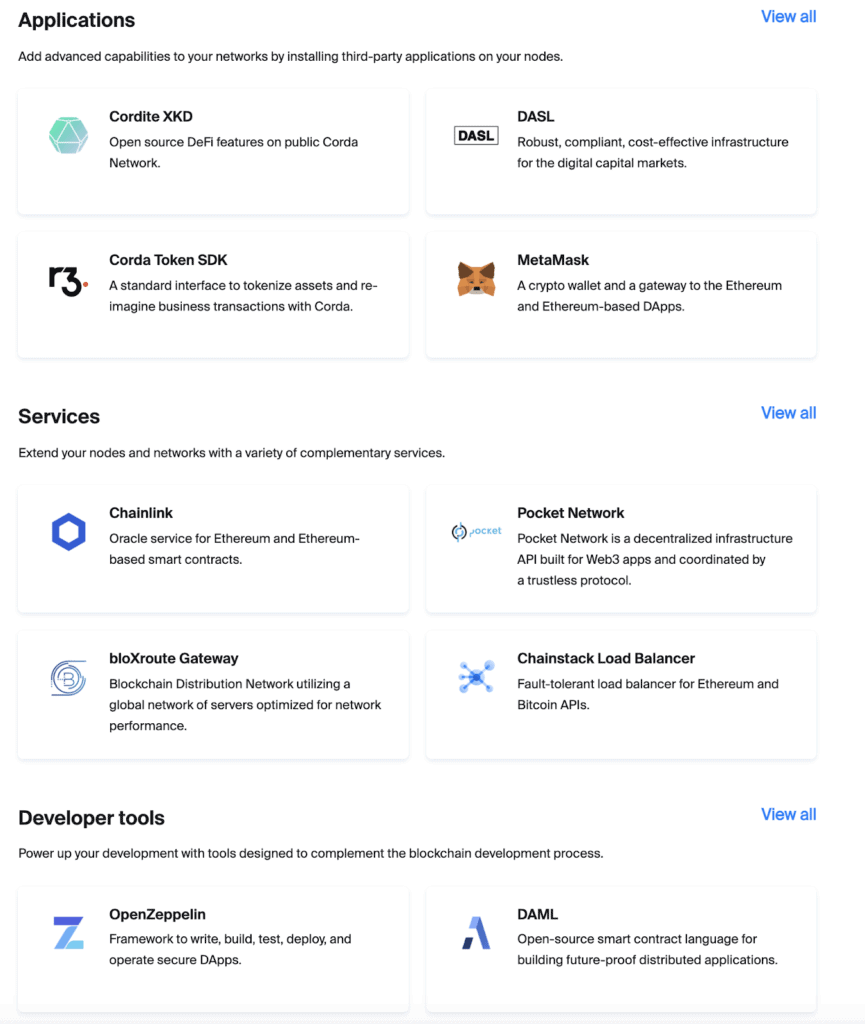
Chainstack Review: Onboarding
Chainstack is very intuitive and has comprehensive documentation that will not only guide you through the platform, but will also give you the basics of each of the protocols. On top of that, Chainstack has development tutorials for each of the protocols it supports that will walk you from zero to a fully working decentralized application—both on consortium and public networks. Their team is known for highly responsive customer support, fast responses, and easy troubleshooting.
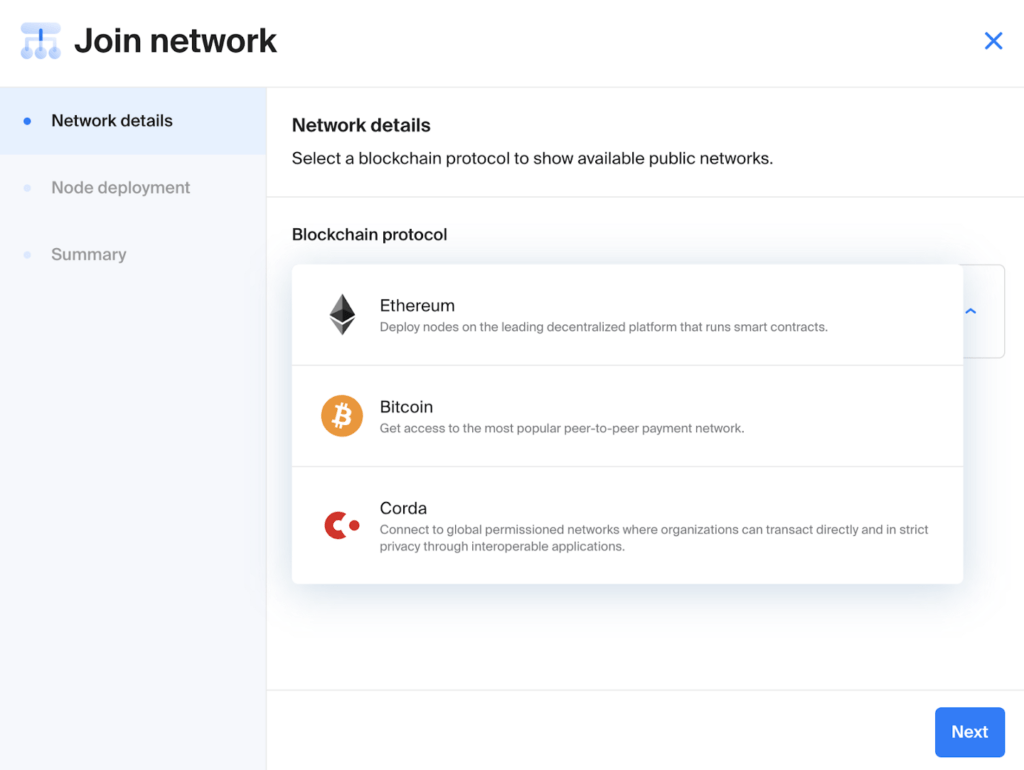
Cross-cloud and cross-region
With Chainstack, you can deploy nodes and networks in a cloud-managed by Chainstack, or in your own instance. Chainstack-managed cloud providers and locations:
- Amazon Web Services
- Northern Virginia us-east-1
- Oregon us-west-2
- Singapore ap-southeast-1
- Microsoft Azure
- London uksouth
- Google Cloud Platform
- Singapore asia-southeast1
- Self-managed infrastructure only on AWS now, but soon it will include also Azure, GCP and any Kubernetes cluster in your own premises.
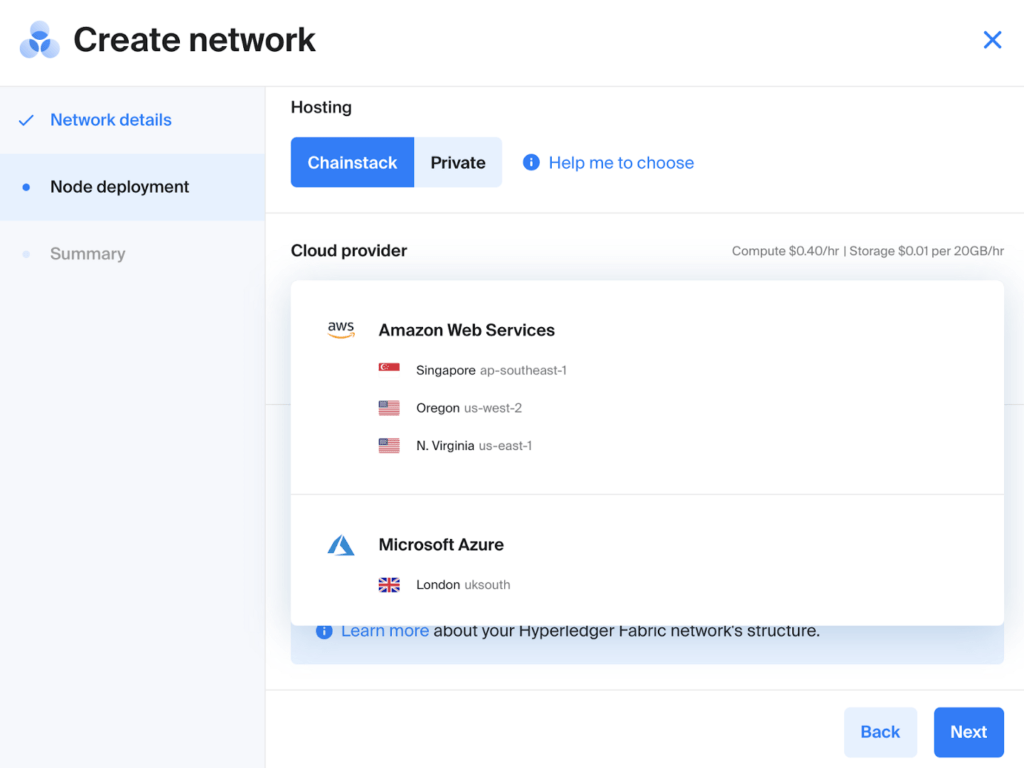
Chainstack Review: Pricing
Chainstack has a good online calculator to estimate the costs of running your nodes and networks.
The pricing consists of a subscription plan—Developer (free), Growth ($19 per month) Business ($49 per month), Enterprise (their premium plan with fully customizable features) —and payment for the usage of your nodes. The usage in turn consists of the computation and storage costs.
Overall, you are basically paying for usage of your node and not for the request numbers.
Partners
Chainstack is well-known in the industry and is an official partner with the Enterprise Ethereum Alliance, Hyperledger, Linux Foundation, Digital Asset, Quorum, R3. Technical partners include AWS Partner Network, Google for Startups, Microsoft for Startups, and bloXroute Labs.
Chainstack Review: Conclusion
Whether you are looking to build an MVP, already running an app in production and looking to scale and save costs, or want to experiment with a protocol, try Chainstack to get a feel of how radically simple it is to use.


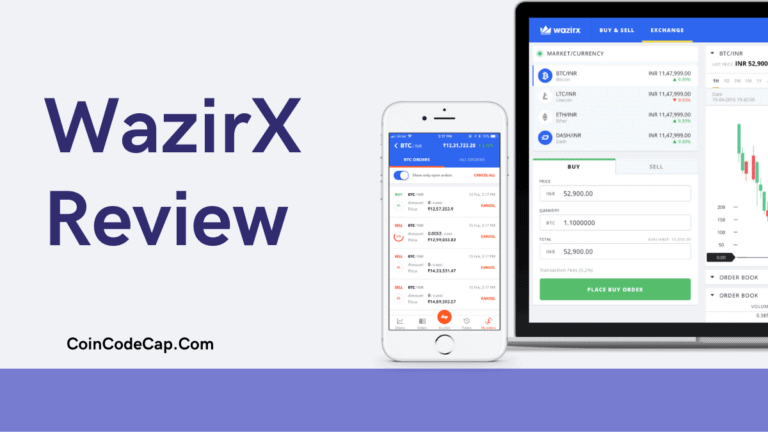
![Crypto.com Review| Lending, Staking, Trading [Must Read] 8 Crypto.com Review](https://coincodecap.com/wp-content/uploads/2021/03/Crypto.com-review-768x432.png)
